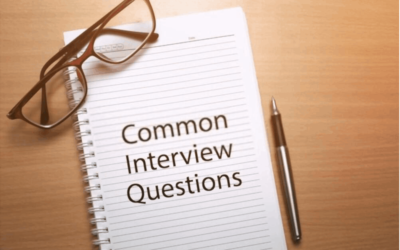That cliché saying, ‘Do not put all your eggs in one basket’, is a good saying until it comes to job applications. The idea of throwing your CVs all over the place, and clicking on every ‘apply’ you find is not entirely a good idea. Granted, the economy is a mess, and the wait for a job is tiring; however, going the route of multiple applications can deprive you of a good job.
This goes in two ways. There is one part where people send out applications to different companies at the same time. Then there is sending out applications for different roles in the same company.
Sensibly, you should only send a maximum number of 2 role applications in the same company. However, some people think it is okay to send job applications for multiple roles in one company. They most likely will not get any of the jobs at all.
Lack of Career Focus: When the Job application hits the HR’s desk, the next thing they look at after your name, is your career focus. Your career focus is supposed to be personalized; however, this would not happen if you are sending multiple applications out at the same time.
The reason is simple; you will not find the time to start writing a career focus that fits into the company you are applying to. You may not even know how to develop a career plan because your mind is not settled on what you are looking for.
The Use of Generic and Non-personalized CVs: HRs hate generic CVs. If you are applying for a role, the goal is to show that you are very fit for that role, which means your CV should show that you are fit. This also means that your CV has to be personalized and tailored to fit the role in that company. If you are sending out CVs to multiple companies simultaneously, you will not have the time to sit down and create a personalized CV to fit the role you are aiming for.
More often than not, someone may just decide to get a generic CV template/format from the internet and run with that. That means that prospective employers will be looking at a CV that does not exactly match the role they have available. Customizing your CV to suit the available position tells the recruiter that you are not only interested in that job, but that you are qualified for it, and more importantly, that you are serious about getting it. Generic CVs hit the shredder faster than you can spell ‘CV’.
They do not have the time to call you and see if you are fit for the role. Your CV should already say it. Getting a CV template/format is not entirely the problem; completing your job application without making efforts to customize your CV to suit the role is the problem. It is important to send in a customized CV, and you cannot do that if you are applying to multiple jobs at the same time.
Unpreparedness for Multiple Job Interviews: Your interview is your one opportunity to sell yourself to your prospective employer properly. However, if you have been running from one interview to the other in the last week, you would not have enough time to prepare for any of them.
Walking into an interview unprepared will most likely move that job far from your grasp, somewhere you cannot reach it. What will you do then? Apply for the next set? Or go for the remaining, not-properly-spaced-out interviews, which you will most likely flop again?
According to Glassdoor stats, every corporate job offer gets an average of 250 resumes, out of which only 4 to 6 will be contacted for the interview, and only one among them will get the job.
Do you understand now, how important it is to be at your A-game during the interview? There are rarely ever second chances with things like these. If you screw up your first interview, they would call the next person.
If this does not sound fair, look at the aforementioned stat again. there is an entire army out there gunning for that same job, with great CVs and enviable qualifications too. They need the job just as badly as you do, and if you do not get your interview right because of poor preparation, they will get let in the same door, you just got let out of.
Burnout During the Various Application Process: Application processes can be very strenuous. As a job seeker, you need your head and mind to be in the right place when applying for a job. Mistakes made may not be noticed by you, but make no mistakes, they will be noticed by HR. It is HR’s job to find discrepancies in your resume, cover letter, or your application form. When they find it, they will move on to the next person.
There are way too many applications that require their time, and they will not give one ridden with mistakes a second look. It is in your best interest, that your resume is free of every form of mistake. You have to go through your application over and over again before you hit that ‘send’ or ‘submit’ button.
However, if you are and have been applying to so many companies, burnout is inevitable, and when this happens, an application will have mistakes. Because of your burnout, you may not notice this, but the HR is not suffering from burnout, so they will notice the result of your burnout. They will not be sympathetic.
Loss of Credibility: A company will not take a person who applies for multiple roles in their company seriously. The ‘jack of all trades’ saying is a myth you should trash. Understandably, desperation will make you want to put your feet in all the waters made available.
However, desperation is one horrid stench that can be perceived from CVs away. Sending out multiple CVs to one company is the fastest way to lose your credibility. There is a specific reason the call for recruitment did not say “We are looking for someone who can do this, that, this and that”. Instead, it listed all the roles differently.
They are expecting a person who has a specialty to apply for a role they are a master at. So when you throw your hands all over the place like that, the company is well within their rights to assume that you are unaware of the role intimately. They will go for someone who knows what they are doing, and your resume goes in the trash. You would never get called.
Getting a job is the goal. However, your strategy through which you intend to get that job matters. The processes leading up to your first interview determine if you get the interview or not. Apply to a few jobs at a time, go for the interviews prepared, after sending an impressive CV. There are jobs, however, you are not qualified for all of them, focus on the ones you are qualified for and apply a few at a time.




